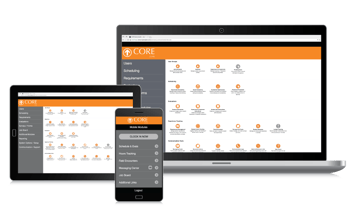Discover the key compliance standards and requirements for higher education institutions and learn how to navigate them successfully.
Understanding the importance of compliance in higher education
Compliance is vital for higher education institutions as it ensures they meet the necessary standards and requirements set by regulatory bodies. By adhering to compliance standards, universities and colleges can maintain their reputation, protect sensitive data, and provide a safe learning environment for students and staff.
Compliance in higher education covers various aspects, including data security, financial management, student privacy, and accessibility. Failure to comply with these standards can result in severe consequences, such as financial penalties, loss of funding, and damage to the institution's reputation.
Moreover, compliance plays a crucial role in ensuring equal opportunities and fairness within higher education. By following compliance standards, institutions can create an inclusive environment for students of diverse backgrounds and abilities, fostering a positive learning experience for all.
Understanding the importance of compliance is the first step towards navigating the complex landscape of higher education regulations.
Common compliance standards for higher education institutions
Higher education institutions must adhere to several common compliance standards to meet regulatory requirements. Some of the most prevalent standards include:
- Family Educational Rights and Privacy Act (FERPA): This federal law protects the privacy of student education records and governs their release.
- Health Insurance Portability and Accountability Act (HIPAA): HIPAA ensures the confidentiality and security of protected health information in healthcare and related fields.
- Payment Card Industry Data Security Standard (PCI DSS): PCI DSS outlines security measures for handling credit card information to prevent fraud and data breaches.
- Americans with Disabilities Act (ADA): ADA requires higher education institutions to provide equal access and accommodations for individuals with disabilities.
These are just a few examples of the compliance standards that higher education institutions must navigate. Staying up to date with the latest regulations and requirements is essential to maintain compliance.
Navigating compliance challenges in higher education
Compliance challenges in higher education can be complex and multifaceted. Some of the common challenges include:
- Keeping up with changing regulations: Compliance requirements for higher education institutions often evolve, making it challenging to stay up to date with the latest changes.
- Balancing multiple compliance obligations: Institutions must navigate various compliance standards simultaneously, which can be overwhelming and time-consuming.
- Limited resources: Many higher education institutions face resource constraints, including budget and staff limitations, making compliance efforts more challenging.
- Ensuring faculty and staff awareness: It is crucial to educate and train faculty and staff about compliance standards to ensure their understanding and adherence.
Navigating these challenges requires a proactive approach, effective communication, and the implementation of robust compliance management strategies.
Best practices for achieving and maintaining compliance
To achieve and maintain compliance in higher education, institutions can follow these best practices:
- Regular compliance assessments: Conduct regular assessments to identify compliance gaps and address them promptly.
- Review contracts for third-party vendors: Whether onboarding or maintaining current vendors, consider checking to ensure the contractual agreements adhere to updated compliance requirements.
- Develop a comprehensive compliance program: Establish a dedicated compliance program that includes policies, procedures, and training to ensure adherence to regulations.
- Collaborate with stakeholders: Engage key stakeholders, including faculty, staff, and students, in the compliance process to foster a culture of compliance.
- Stay informed about regulatory changes: Keep track of regulatory updates and changes to ensure continuous compliance.
- Leverage technology solutions: Utilize technology tools and software to streamline compliance processes, automate tasks, and enhance data security.
By implementing these best practices, higher education institutions can navigate the compliance landscape effectively and mitigate potential risks.
The role of technology in ensuring compliance
Technology plays a crucial role in ensuring compliance in higher education. It can streamline processes, automate tasks, and enhance data security. Some ways technology can support compliance efforts include:
- Document management systems: These systems help institutions organize and securely store compliance-related documents and records.
- Learning management systems: LMS platforms enable institutions to deliver compliance training to faculty, staff, and students, ensuring their awareness and understanding of regulations.
- Data encryption and security tools: Implementing robust encryption and security measures can protect sensitive data from unauthorized access and breaches.
- Compliance management software: Specialized software can assist in managing and tracking compliance requirements, deadlines, and documentation.
By leveraging technology solutions, higher education institutions can streamline compliance processes, improve efficiency, and strengthen their overall compliance posture.
How CORE keeps up with compliance standards
CORE is on a mission to transform the way colleges and universities manage their experiential and clinical education. That’s why we offer a full suite of configurable technology solutions for experiential and clinical education management, curricular mapping and career readiness.
But there’s something else the CORE team is committed to providing to higher education institutions - peace of mind with compliance requirements and data risk management.
CORE is dedicated to upholding robust security measures and ensuring compliance with higher education standards and regulations. For example, our in-house information technology team is currently working on completing the SOC 2 certification by the end of 2023.
Additionally, we adhere to requirements such as HIPAA and ADA compliance.
Rest assured, we have you covered when it comes to maintaining the highest level of security and compliance in the industry.
CORE Higher Ed Team
Author




